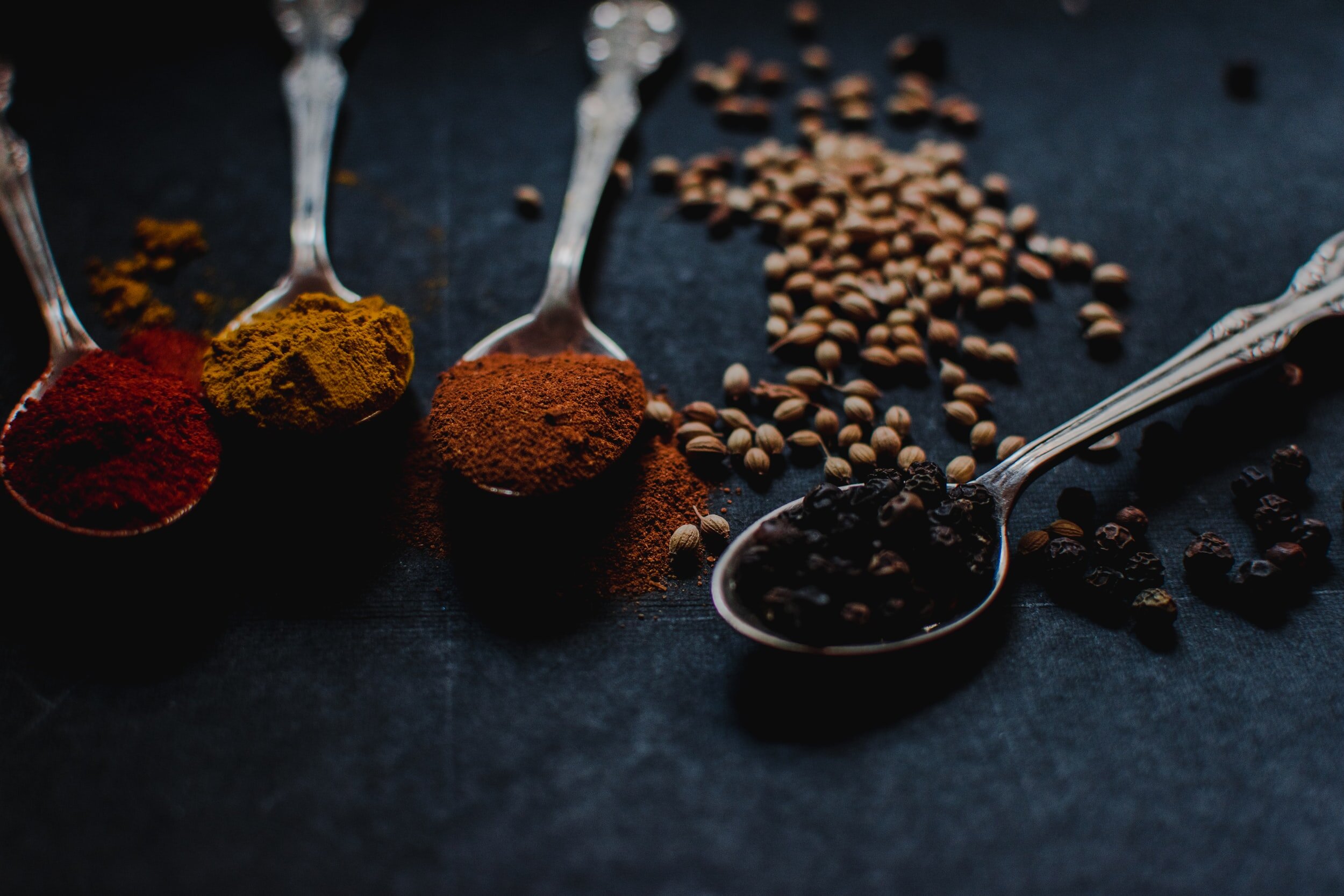
Ayurveda
The Science of Life .
Ayurveda is One of the World’s Oldest and Most Sophisticated Healing Systems
Thousands of years before modern medicine provided scientific evidence for the mind-body connection, India developed Ayurveda, which continues to be one of the world’s most sophisticated and powerful mind-body health systems.
Ayurveda is more than a system of treating illness, it is the science of life (Ayur = life, Veda = science or knowledge) which offers time-tested, practical, holistic lifestyle protocols designed to help you heal and to achieve vibrant health so that you can realize your full human potential.
Prana Yoga Center offers workshops & speciality classes for those new to Ayurveda and personal consultation sessions, with a Certified Ayurvedic Specialist, for those who want to explore this ancient healing system in a one-to-one format.
New to Ayurveda? Check out this video.

“Yesterday I was clever, so I wanted to change the world. Today I am wise, so I am changing myself.”
—RUMI
Ayurveda Workshops
We offer Ayurveda workshops to support your path of holistic living that is a simple, practical, mindful, and enjoyable path towards health and happiness.
Ayurveda is a holistic, natural medicine system often called the “Mother of all healing”. Ayurveda offers practical wisdom and the art of holistic living which places great emphasis on its prevention and a time-tested system of self-healing and self care.
Seasonal Ayurveda Workshops
The 10 Habits That Will Change Your Life
Living In Harmony with the Ayurvedic Clock
Fall Rejuvenation & Restoration
Winter Wellness & Immunity
Ayurveda Spring Cleanse Program
Lisa Bertke
Certified Ayurveda Yoga Specialist
Personal Holistic Health Ayurvedic Consultations
Ayurveda, translated as 'The Science of Life', is an ancient system of healing with roots in India. This holistic healing system treats each individual uniquely and treats imbalances based on your unique constitution.
We offer Ayurvedic consultations for those seeking to work one-on-one with a Certified Ayurveda & Yoga Specialist. The purpose of the Ayurvedic consultations is to provide insight and recommendations on lifestyle habits to engage the body’s natural healing ability. Using the principles of Ayurveda, your consultation will address mind, body, and spiritual health. By addressing the root cause of imbalances, you’ll leave empowered with a plan to enhance your wellbeing.
Ayurveda is a profound way to address a variety of health issues.
Improve your energy, digestion, elimination, and sleep
Re-envision your current lifestyle
Support a time-of-life change like peri/menopause
Provide holistic support for illness and disease
Bring more vibrancy & meaning to your life
This ancient science is a deep well of practical tools to empower YOU to create the vibrant health and longevity.

“If diet is wrong, medicine is of no use. If diet is correct, medicine is of no need.”
—ANCIENT AYURVEDIC PROVERB
Initial Consultation
Our Ayurvedic consultation begins with an overview of Ayurveda and a health history discovery session into the root causes or underlying imbalances of your body type (dosha). You’ll gain a deeper understanding of your constitution, identify your major health concerns, and receive an overall health and lifestyle assessment with support/treatment recommendations. You will leave with practices that you can immediately use to support your overall health and wellbeing. This session is a collaborative effort so you will be an active participant in choosing what is best for you and your lifestyle.
Afterwards, a customized Ayurvedic treatment protocol, suited to target the root cause of your imbalance, is developed and administered. Best of all, we teach you how to integrate this new protocol into your life so that it becomes seamless and sustainable for
Intake sessions are casual, private and confidential. At the end of your consultation, your personalized treatment plan (dinacharya or daily routine) will address lifestyle recommendations for dosha balance including: daily practices of asana, pranayama, meditation, six tastes/herbal (diet) interventions and more. Consultation also includes 2 additional 1 hour sessions with email follow up as needed.
Session One: Includes an overview of Ayurveda and yoga as therapy, a health history assessment, review of your unique goals, a dosha quiz, tongue, skin, pulse evaluation and time for questions. (1 hour)
Session Two: Is dedicated to learning your personalized lifestyle routine, herbal therapies and yoga practice designed to support your health and wellness goals. (1 hour)
Session Three: In this session we assess the effectiveness of your personalized lifestyle routine and make adjustments for improvements in your progress and shifts in your goals. (1 hour)
Investment - $150/session
1 Hour Initial Consultation
Email & Phone Support with Protocol & Recommendations (included in consultation)
1 Hour Follow Up one-on-one sessions and products are available at an additional cost.

“Ayurveda has changed my life. The simple, daily practices of self-care have brought me into greater balance and made me realize how living in harmony with nature is the key inner peace and longevity.”
—MARY J.
Ayurveda FAQs
+ Why try Ayurveda?
An increasing number of physicians from all over the world are interested in Ayurveda and have adapted this medicinal system to western culture. Ayurvedic treatment techniques have been proven effective in many clinical studies, making it a smart choice in cases of chronic illnesses, which can not be treated in a satisfactory manner by conventional medicine. Ayurveda aims not only to treat illness, but also to prevent it in healthy people, who can get ill due to the stress of modern life.
+ What are the principles of Ayurveda?
The essential principle of Ayurveda is to live in compliance with one’s constitution and with the laws of nature. Ayurveda is a holistic science; it concerns the whole human being. It searches for and cures the causes of illness, instead of merely suppressing symptoms. Diet, exercise, and lifestyle are individually recommended according to the constitution, race, and climatic conditions of the patient. The focus on individual distinctness and the individual approach to treatment is one of the unique features of Ayurvedic medicine.
+ What are the differences between Ayurveda and western medicine?
Ayurveda does not stand against western medicine. In acute cases, the role of classical medicine is irreplaceable. In chronic illnesses, combination with Ayurveda can be beneficial, and in many cases, Ayurveda achieves excellent results where even classical medicine has failed. Ayurveda aims at the elimination of the root cause of an illness, not the suppression of symptoms; during the treatment, only natural remedies free of any side effects are used.
+ What are three doshas?
According to Ayurveda, a human being is composed of five elements. Of these five elements – air, space, fire, water, and earth – two elements always form the basis of each of the three doshas. The word “dosha” and the names of the three doshas, Vata, Pitta, and Kapha, are Sanskrit words.
The Doshas interpenetrate everything in nature. Vatta is the energy of movement, Pitta is the metabolism and Kapha corresponds to the principle of substance and structures. These energies occur in each of us, in differing amounts in each individual. Each of us has a unique structure of energy, and therefore each of us is unique. The combination of those three doshas comprises our constitution.
+ How is diagnosis done in Ayurveda?
There are three main methods mentioned in Ayurveda for diagnosing the dosha imbalance and disease process in a person.
- Darsana Pareeksha – Observing the patient’s physical signs and symptoms, e.g. the color of skin, hair, eyes, behavior, and body condition.
- Prasna Preeksha – Asking detailed questions regarding the imbalance of each dosha
- Sparsana Pareeksha – Touching the patient. Pulse diagnosis, palpation, percussion, and auscultation are included in this method.
+ What are the main treatment techniques?
Ayurveda offers a treatment for each of the five senses: herbs and nutrition act on the sense of the taste, the olfactory sense is influenced by aromatherapy, the touch is related to Yoga, precious stones and massages, the hearing is treated by mantra (sound energy with curative effect) and we can affect the sight by colors (color therapy).
Ayurveda mostly proves successful in the treatment of chronic illnesses. Ayurveda covers and cures a wide range of illnesses, from the common cold to chronic illnesses, allergy, chronic fatigue, ulcers, and insomnia. The choice of therapy depends on the individual’s constitution, the type of imbalance, and the season.
The following are the most frequently used treatment techniques:
- aromatherapy including the use of aromatic oils and incense sticks
- herbal treatment using natural substances without side effects
- special breathing exercises carried out before meditation
- appropriate exercises that contribute to the whole health
- Panchakarma, a detoxification method that cleans the organism and eliminates the settlement of toxic substances
- Shirodhara, with its deep calming effect
- Alimentation and change of diet
- Meditation
- Marma therapy, gentle massage that stimulates some points on the body and reflexively affects the respective organs
- Yoga
- Therapy with colors and stones
+ How can I get to know my constitution?
Your constitution can be roughly determined by filling out the dosha-test on our website. An exact conclusion, on which basis the individual recommendations are made, is possible only after a personal consultation in our center.
+ What importance do herbs have?
Herbs are a gentle and natural treatment. They do not have any side effects, because they are compatible with the body’s own chemicals. They are absorbed easily, and because of their different characteristics, it is possible to choose exactly the right ones in a given case, depending on the illness.
+ What is the importance of food in Ayurveda?
According to Ayurveda, up to 70 % of illnesses can be influenced by diet. A well-rounded, satisfying diet that leads an individual to balance can be designed in compliance with the constitution. Ayurveda does not expressly forbid any food, nor does it incline to any artificial, unnatural diet. In each group (fruit, vegetables, meat, grains, and dairy products) there are certain foods that are more appropriate for an individual than others. Properly chosen food, through its own qualities, has a curative influence on particular organs.
+ Can one take Ayurveda medicine with modern medicines?
If not indicated otherwise by your physician, Ayurvedic medicines can generally be taken along with allopathic medicines. Moreover, Ayurvedic medicines can be used to supplement allopathic medicines in most chronic and degenerative diseases. As such, there is no harm in practicing Ayurveda, even without the prescription of the doctor. However, mineral-based medicines should only be used after consulting your doctor.


